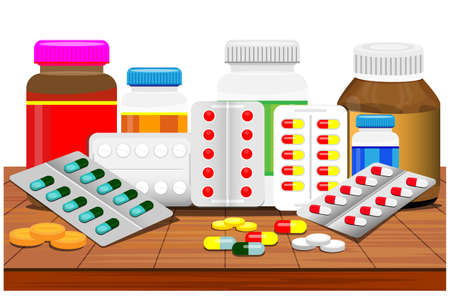Introduction to Medication Management in Depression Recovery
When it comes to treating depression, medication management is often an important part of a comprehensive recovery program in the United States. Many people wonder how medication fits into the bigger picture and why doctors frequently recommend it as part of depression treatment. In American healthcare, the approach to depression is usually holistic, meaning that different methods are combined to support each individual’s needs.
How Medication Fits Into Depression Recovery Programs
Medication can play a key role in helping manage the symptoms of depression, especially for people with moderate to severe cases. While therapy, lifestyle changes, and social support are also essential, medication may help stabilize mood, improve sleep, and give people the boost they need to fully engage in other aspects of their recovery plan.
Why Medication Is Often Recommended in the U.S.
In the United States, mental health professionals often recommend medication for several reasons:
| Reason | Description |
|---|---|
| Symptom Relief | Medications can quickly reduce some symptoms of depression, such as persistent sadness or lack of energy. |
| Supporting Other Treatments | Medication can make it easier for individuals to benefit from therapy or counseling by improving concentration and motivation. |
| Reducing Risk | For those at risk of self-harm or severe functional impairment, medication may offer critical stabilization. |
| Personalized Approach | Treatment plans are tailored to each person’s unique situation, and medication is one option among many that may be used together for best results. |
A Team-Based Care Model
Most U.S. recovery programs take a team-based approach. This means psychiatrists, primary care doctors, therapists, and sometimes pharmacists work together to monitor progress and adjust medications as needed. Patients are encouraged to ask questions and be active participants in decisions about their treatment.
2. Understanding the Role of Medications
Medications are a key part of many depression recovery programs in the United States. They can help manage symptoms, improve mood, and make it easier to participate in therapy or daily activities. Its important to understand what types of medications are commonly used, how they work, and why finding the right medication for you is a personal journey.
Common Types of Depression Medications
Doctors usually prescribe one of several main types of medications for depression. Each type works in a different way to help balance chemicals in the brain that affect mood and emotions. Here’s an overview:
| Type of Medication | How It Works | Examples (Brand Names) |
|---|---|---|
| SSRIs (Selective Serotonin Reuptake Inhibitors) | Increase serotonin levels to boost mood | Zoloft, Prozac, Lexapro |
| SNRIs (Serotonin-Norepinephrine Reuptake Inhibitors) | Increase both serotonin and norepinephrine levels | Cymbalta, Effexor XR |
| Atypical Antidepressants | Work on different brain chemicals (not just serotonin) | Wellbutrin, Remeron |
| Tricyclic Antidepressants (TCAs) | Mainly increase norepinephrine and serotonin; older class | Elavil, Pamelor |
| MAOIs (Monoamine Oxidase Inhibitors) | Block breakdown of neurotransmitters; less commonly used due to diet restrictions and side effects | Nardil, Parnate |
How These Medications Help
The goal of these medications is to help balance brain chemicals linked to mood, motivation, and stress. For many people, this means feeling more like themselves again—less sadness, more energy, and better sleep. Some medications may also reduce anxiety that often goes hand-in-hand with depression.
The Need for a Personalized Approach
No two people experience depression the same way, so medication management is never “one-size-fits-all.” What works well for one person might not work for another. Your doctor will take into account things like your symptoms, health history, lifestyle, and even possible side effects before recommending a medication. Sometimes it takes trying more than one medicine or adjusting the dose to find what works best for you.
Your Team Is There to Help
Your care team—usually including your primary care provider, psychiatrist, or therapist—will work with you throughout your recovery journey. They’ll monitor how you’re doing and make changes as needed. Open communication is key: always share how you feel and report any side effects so adjustments can be made quickly.

3. What to Expect During the Medication Management Process
If you or a loved one is starting medication as part of a depression recovery program in the United States, it’s helpful to know what the medication management process typically looks like. This journey involves several key steps, each designed to help you find the treatment that works best for you.
Initial Psychiatric Evaluation
The first step is an initial psychiatric evaluation. You’ll meet with a psychiatrist or a nurse practitioner who specializes in mental health. During this visit, they will ask about your symptoms, medical history, family history of mental health issues, and any medications you are currently taking. This helps them understand your unique needs and decide if medication might be right for you.
What Happens During the First Appointment?
| Step | What to Expect |
|---|---|
| Symptom Review | Discussion about how you’ve been feeling, changes in mood, sleep, appetite, and energy levels. |
| Medical History | Questions about past illnesses, allergies, and current medications. |
| Family History | Any history of depression or other mental health conditions in your family. |
| Treatment Planning | Talk about possible treatment options, including medications and therapy. |
Getting Your Prescription
If medication is recommended, your provider will explain how it works, potential side effects, and how long it may take to notice changes. In most U.S. clinics and hospitals, prescriptions are sent electronically to your pharmacy. You’ll also receive instructions on when and how to take your medication safely.
Regular Follow-Ups
Ongoing care is an important part of medication management. Regular follow-up appointments—often every few weeks at first—allow your provider to check in on your progress. These visits are a chance to talk about how you’re feeling and whether you’re experiencing any side effects.
Typical Follow-Up Schedule
| Timeframe | Purpose of Visit |
|---|---|
| 2-4 Weeks After Starting Medication | Check for side effects and early signs of improvement. |
| 6-8 Weeks After Starting Medication | Assess symptom changes and discuss adjustments if needed. |
| Ongoing (Every Few Months) | Monitor long-term progress and make further adjustments as necessary. |
Adjusting Dosages and Medications
No two people respond exactly the same way to medication. If you’re not seeing improvement or if you’re having troublesome side effects, your provider may adjust the dosage or try a different medication altogether. This is a normal part of finding what works best for you, so don’t get discouraged if it takes some time.
Your Role in Medication Management
You play a big part in this process by tracking how you feel and communicating openly with your healthcare team. Keeping notes about your mood or any changes you notice can be very helpful during follow-ups. Remember, asking questions is always encouraged—you deserve to understand your treatment plan every step of the way.
4. Collaboration with Your Healthcare Team
When it comes to medication management in depression recovery programs, working closely with your healthcare team is essential. This team often includes your primary care provider, psychiatrist, therapist, and sometimes other specialists. Open and ongoing communication among everyone involved helps you get the best care possible and ensures your medications are working as intended.
Why Communication Matters
Good communication helps to:
- Monitor how well medications are working for you
- Spot side effects early
- Adjust dosages or switch medications if needed
- Address concerns like cost, refills, or insurance coverage
- Coordinate therapy and lifestyle changes with medication plans
Your Role in the Team
You play a key part in your treatment plan. Being honest about your symptoms, side effects, or any challenges you face helps your providers support you more effectively. Don’t hesitate to ask questions or share concerns at any time.
Who’s on Your Healthcare Team?
| Team Member | Role in Medication Management |
|---|---|
| Primary Care Provider (PCP) | Oversees general health, prescribes medications, monitors for physical side effects |
| Psychiatrist | Specializes in mental health medications, adjusts prescriptions as needed |
| Therapist/Counselor | Provides talk therapy, tracks emotional progress, communicates with prescribers about symptoms |
| Pharmacist | Answers medication questions, checks for interactions, helps with refills and insurance issues |
Tips for Better Collaboration
- Keep a list of all your medications and doses handy for every appointment.
- Let your providers know about any new symptoms or changes in mood right away.
- If you see multiple doctors, make sure they all have the same information about your medications.
- Bring up any worries about cost or side effects—your team can help find solutions.
- If you’re not sure who to call with a question, start with your primary care provider or therapist.
This teamwork approach helps make sure that your medication plan supports your overall recovery from depression and fits into your everyday life.
5. Addressing Stigma, Side Effects, and Cultural Concerns
When it comes to medication management in depression recovery programs, it’s important to talk openly about common challenges like stigma, side effects, and cultural perspectives. These factors can influence how comfortable someone feels about starting or continuing medication.
Understanding and Overcoming Stigma
Many people in the U.S. still feel embarrassed or ashamed about using medication for mental health, even though depression is a medical condition like diabetes or high blood pressure. Here are some ways to help overcome this stigma:
- Education: Learning more about depression and its treatment can help normalize the use of medication.
- Support Groups: Joining a community—online or in person—can help you connect with others who understand what you’re going through.
- Open Conversations: Talking honestly with family and friends can reduce misunderstandings and increase support.
Managing Potential Side Effects
Medications for depression can cause side effects, especially when starting a new prescription or changing doses. It’s helpful to know what to expect and how to handle them. The table below shows some common side effects and simple strategies for managing them:
| Common Side Effect | What You Can Do |
|---|---|
| Nausea | Take medication with food if your doctor allows; try small, frequent meals. |
| Drowsiness | Take your medicine at bedtime if recommended by your provider. |
| Weight Changes | Monitor eating habits; stay active; ask your provider for advice. |
| Sexual Side Effects | Discuss openly with your healthcare provider; adjustments may be possible. |
| Dry Mouth | Sip water regularly; chew sugar-free gum or candy. |
Cultural Perspectives in American Communities
The United States is home to people from many backgrounds, each with their own beliefs about health and healing. For some, there may be added hesitation or concerns about taking psychiatric medications due to cultural values or past experiences. Here’s how programs can respect these differences:
- Culturally Competent Care: Providers should listen carefully and respect each person’s unique perspective on treatment.
- Bilingual Resources: Offering information in different languages helps families make informed decisions together.
- Family Involvement: Including loved ones in discussions can build trust and ease worries about medication use.
- Addressing Misinformation: Providing accurate facts can counter myths that may exist in certain communities.
If You Have Concerns…
If you’re worried about stigma, side effects, or cultural issues related to medication for depression, talk openly with your healthcare provider. They want to work with you to find solutions that fit your needs and values. Remember, you are not alone—many Americans face similar questions on the road to recovery.


